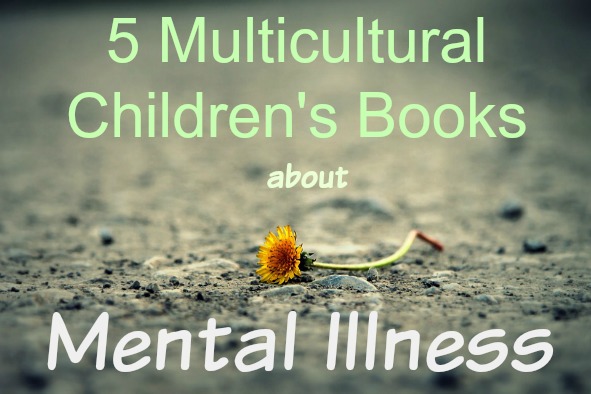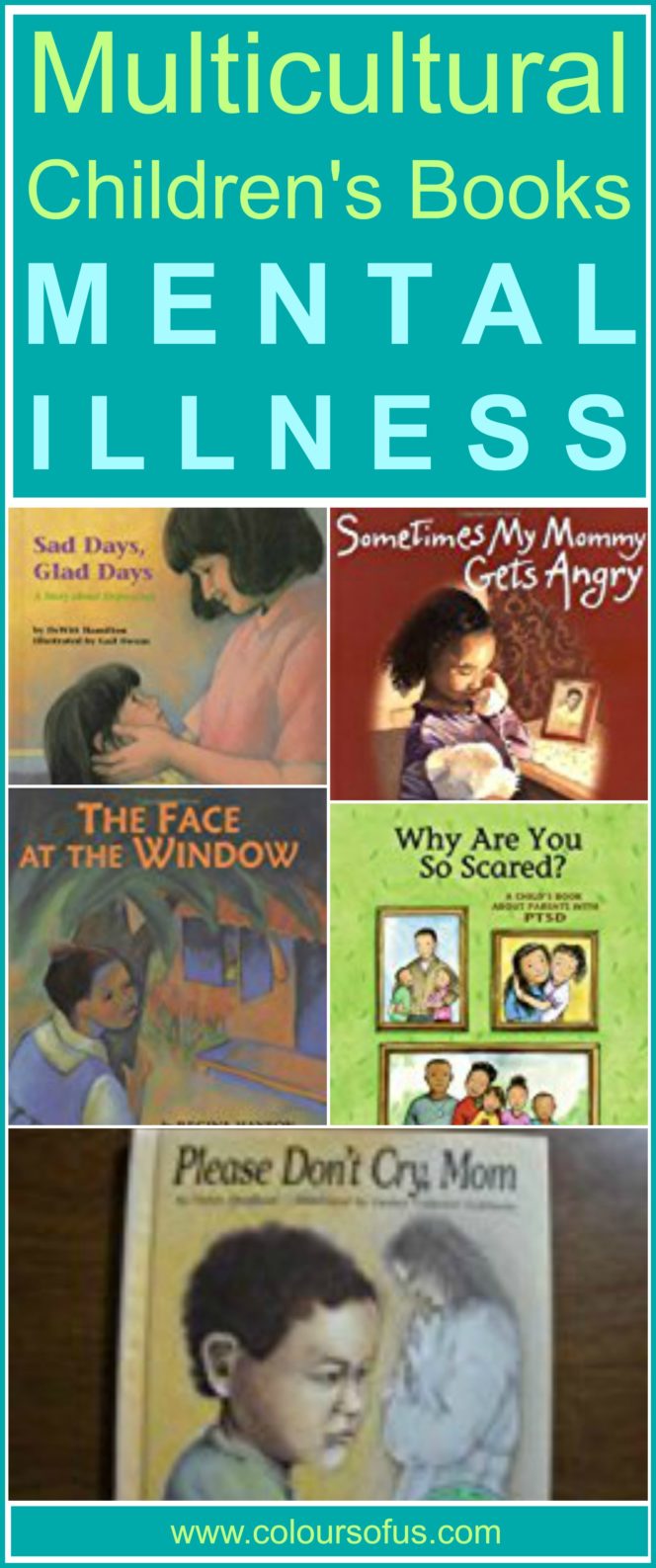May is Mental Health Awareness Month! I’ve searched the internet high and low for multicultural picture books about mental illness but was disappointed to find only a few (interestingly, most of them are older ones, written in the 90’s).
Mental illness is a difficult subject most parents probably want to keep away from their children. But for children living with a mentally ill parent reading picture books about mental illness can help them process their feelings and understand that they are not the only ones living in this situation and that their parent’s mental illness isn’t their fault.
And for all other children, exposing them to picture books about mental illness is an opportunity to create awareness early on and prevent prejudice and stigmatization.
I really wished there were more multicultural picture books about mental illness out there. If you know of any that are not on this list, please let me know in the comments!
5 Multicultural Picture Books about Mental Illness
Sad Days, Glad Days: A Story about Depression
by DeWitt Hamilton
Even though no ethnicity is specified, I think Hispanic children will be able to identify with the main character in this book. Amanda Martha tries to understand her mother’s depression, which sometimes makes her sleep all day, feel sad, or cry. Her mother’s changing moods are reflected in the changing colours of the illustrations: Cool, dark colours on sad days, bright colours on happy days. Sad Days, Glad Days is a sensitive picture book that takes an honest look at how living with a mother suffering from depression affects a child. It reassures children that they are neither the cause nor the solution to a parent’s mental illness. Includes a foreword by a medical professional. ~ Hispanic – Preschool, Elementary School
Sometimes My Mommy Gets Angry
by Bebe Moore Campbell
Her mother’s changing moods and behaviour are confusing for Annie. Some mornings, her mother’s smiles are as bright as sunshine but other days, she doesn’t smile at all and gets very angry. With the help of her grandma Annies remembers what to do on those days and that her mommy loves her, no matter what. Sometimes My Mommy Gets Angry is a poignant story about living with a parent who suffers from bipolar disorder, perfectly complemented by expressive watercolour illustrations. The book reassures children that their parent’s illness is not their fault and introduces coping strategies. ~ African – Preschool, Elementary School
The Face at the Window
by Regina Hanson
“Any time Miss Nella show her face at her window, something terrible goin’ to happen.” In a small Jamaican village, most people believe the strange elderly neighbour is a witch who can change children into two-headed chickens and rides a three-legged horse. But Dora’s parents explain to her that Miss Nella suffers from a mental illness and that she is feared because “some people are afraid of what they don’t understand.” Dora learns to overcome her fear and befriends Miss Nella. The Face At The Window is a gentle, compassionate story about the rift mental illness (and associated prejudices, stigma, and myths) can create and how kindness can bridge this rift. ~ African – Preschool, Elementary School
Please Don’t Cry, Mom/a Book About Depression
by Helen Denboer
Once happily absorbed in her family and in photography, Stephen’s mother is now sad all the time and cries often. Nobody can make her feel better. Reluctant to medical treatment, she eventually suggests that she would be better off dead. It is at this point that her husband insists that she sees a psychiatrist which marks the beginning of a gradual recovery. Please Don’t Cry, Mom is a realistic and sensitive portrayal of a family learning to cope with a family member’s depression. ~ African – Preschool, Elementary School
Why Are You So Scared?: A Child’s Book About Parents With PTSD
by Beth Andrews
Having a parent suffering from Post-Traumatic Stress Disorder can leave children feel confused, scared, or helpless. Why Are You so Scared? explains PTSD and its symptoms in a reassuring, child-friendly way. The book is full of questions and exercises that children and parents can work through together. Children are encouraged to express their thoughts and feelings through writing, drawing, and designing. A useful practical tool to help children cope with a parent’s PTSD. ~ Diverse – Elementary School
*You can buy any of the books on this site from Amazon US, CAN and UK by clicking on the book title or image*


